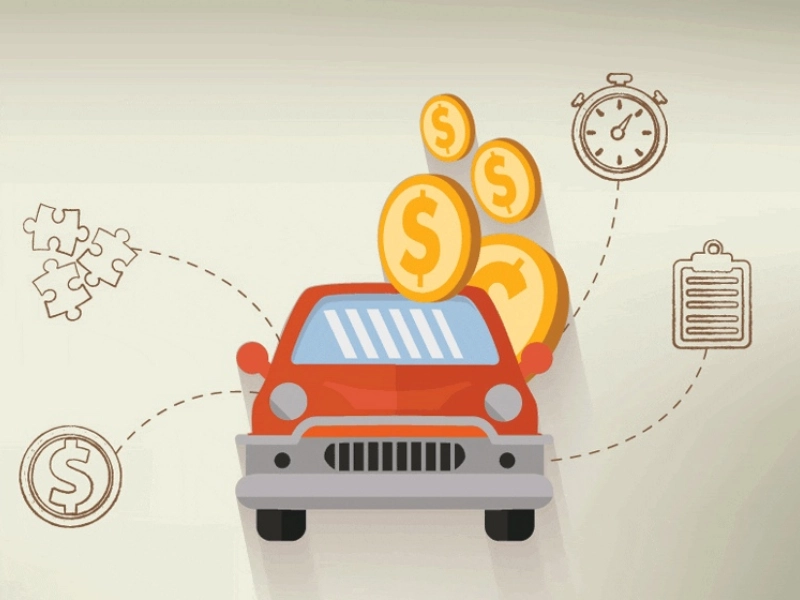Navigating The Auto Loan Maze:Finding The Right Car Financing For You
A lot of people finance their cars using loans, and the conditions of such loans can significantly affect the total cost of your new vehicle. Making informed decisions may include selecting between applying for prequalification or shopping at dealerships that provide lender-arranged financing, as well as knowing your credit score and spending limit.
Credit Rating

Initial Payment
 In order to assess your credibility as a borrower, lenders carefully review your credit score. A substantial down payment reduces the amount of the loan you need to finance, indicating to lenders that you're a less risky borrower and possibly increasing your chances of financing approval. Additionally, it can let you select a shorter term, which usually results in a lower overall interest payment.
You have two options for making a down payment: cash or the value of your current car trade-in. For those looking to buy a car with excellent credit, dealerships occasionally offer manufacturer-sponsored programs with low or 0% interest on auto loans. But before you choose a loan, it's crucial to weigh all of the expenses, including interest, between the dealer and others.
In order to assess your credibility as a borrower, lenders carefully review your credit score. A substantial down payment reduces the amount of the loan you need to finance, indicating to lenders that you're a less risky borrower and possibly increasing your chances of financing approval. Additionally, it can let you select a shorter term, which usually results in a lower overall interest payment.
You have two options for making a down payment: cash or the value of your current car trade-in. For those looking to buy a car with excellent credit, dealerships occasionally offer manufacturer-sponsored programs with low or 0% interest on auto loans. But before you choose a loan, it's crucial to weigh all of the expenses, including interest, between the dealer and others.
Amount of the Loan
 Knowing how much you can reasonably pay each month is also crucial. Each person's affordability will vary, so it's best to utilize internet calculators to find out. While many auto dealers will contact several lenders on behalf of their clients, you should do your own research. An annual percentage rate, or APR, is what lenders will normally price you; compare offers to get the best deal.
To determine if you can afford to repay current and future obligations, lenders will review your income, monthly spending, and credit history. Your credit score will rise and loan qualification will become simpler if you diversify your credit portfolio and pay off large credit card amounts to reduce your credit utilization.
For auto loans, some lenders advertise longer terms, which might lead to a reduced monthly payment. However, keep in mind that extending the period will ultimately result in larger car payments due to higher interest rates.
Knowing how much you can reasonably pay each month is also crucial. Each person's affordability will vary, so it's best to utilize internet calculators to find out. While many auto dealers will contact several lenders on behalf of their clients, you should do your own research. An annual percentage rate, or APR, is what lenders will normally price you; compare offers to get the best deal.
To determine if you can afford to repay current and future obligations, lenders will review your income, monthly spending, and credit history. Your credit score will rise and loan qualification will become simpler if you diversify your credit portfolio and pay off large credit card amounts to reduce your credit utilization.
For auto loans, some lenders advertise longer terms, which might lead to a reduced monthly payment. However, keep in mind that extending the period will ultimately result in larger car payments due to higher interest rates.
Rate of Interest
 Because the average cost of a new car is $47,401 and many customers must finance their purchase, interest rates have a significant impact on the final cost of your car. To find out what rate and terms you qualify for in advance, it's a beneficial idea to be preapproved for an auto loan. This might help you choose the best lender for your circumstances and provide you with an with an advantage when negotiating at the dealership or with an online vehicle store.
The best rates can be found at your local bank or credit union, as well as from specialty lenders who make loans to borrowers with low credit ratings or other unique situations. Additionally, dealer financing—also known as captive finance—should be taken into account. This type of financing is typically provided by the automaker, who may offer special promotions and more accommodating loan conditions. To determine how much your monthly payment will be, factor in the total loan cost, interest rate, and loan duration.
Because the average cost of a new car is $47,401 and many customers must finance their purchase, interest rates have a significant impact on the final cost of your car. To find out what rate and terms you qualify for in advance, it's a beneficial idea to be preapproved for an auto loan. This might help you choose the best lender for your circumstances and provide you with an with an advantage when negotiating at the dealership or with an online vehicle store.
The best rates can be found at your local bank or credit union, as well as from specialty lenders who make loans to borrowers with low credit ratings or other unique situations. Additionally, dealer financing—also known as captive finance—should be taken into account. This type of financing is typically provided by the automaker, who may offer special promotions and more accommodating loan conditions. To determine how much your monthly payment will be, factor in the total loan cost, interest rate, and loan duration.







